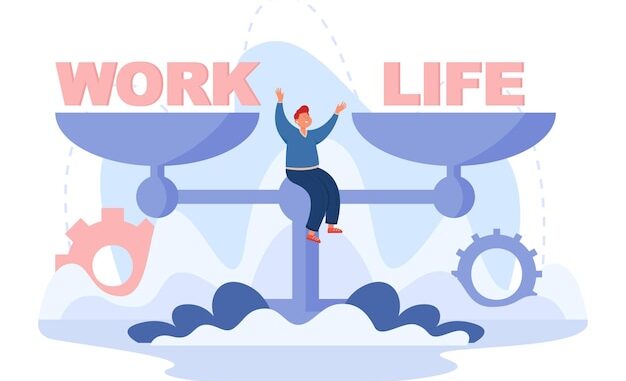

A companion as of late bemoaned that Typhoon Debby, floating over the South Carolina coast, would likely obliterate his ocean side house. A client referenced that her manager called her to his office after a gathering, and she was sure of being laid off. A relative demanded before his X-ray that a growth was dangerous. The results of each of the three situations were the specific inverse of the narratives they made up. Tropical storm Debby kept away from my companion’s ocean side house, the client was advanced rather than terminated and the relative’s growth ended up being harmless.
In the event that you’re similar to the vast majority, you, as well, have an “Internal Soothsayer” that makes up bad tales about what your future holds before it at any point works out: “I likely could arrive at the cutoff time.” or “I’m apprehensive I’ll tumble in the new employee screening” or “Imagine a scenario in which I get a terrible presentation survey.”
The Apparatus Of ‘Deliberate Composing’
Certain individuals come through difficulties more grounded and more fruitful, while others appear to be caught in casualty hood and disappointment. As per Lior Arussy in his book, Try to Writer: Assume responsibility for the Account of Your Life, the basic element deciding disappointment or achievement lies in the story individuals make around their encounters. He refers to this interaction as “purposeful composing” — a call to make and possess your vocation story, to be intentional, to dream and to graph a way toward accomplishing that fantasy.
“Creating is a proactive way to deal with transforming educational encounters into commended sections and achievements. Yet, past essentially imbuing reason into the past, writing is changing over those encounters into directing life examples, strength and flexibility that set you up to be victorious in your next challenge,” Arussy makes sense of. “This implies outlining encounters — both positive and negative, arranged and unforeseen — in manners that raise you from the casualty job and into the hero.”
He takes note of that the greatest snag to being future-prepared happens when you are left with an old story. At the point when pioneers and colleagues creator their own accounts, they transform their previous encounters into future strength. It includes assuming responsibility for your profession story, zeroing in on the power you have and utilizing it to construct the vocation you need.
At the point when pioneers and colleagues feel stuck, unfit to push ahead, they need to take a gander at the narratives they’re educating themselves concerning their own lives and their future professions. “We as a whole live in stories. However, stories are not realities — they’re the accounts we make in view of our previous encounters and the voices in our minds,” Arussy calls attention to. “Many individuals can’t confront difficulties since they neglected to writer and convert their previous encounters into future-prepared strength.”
The most important phase in writing your raised life starts with perceiving that you are seeing your encounters from perspectives that cloud current realities, as per Arussy. “We favor reaffirming our present status as opposed to wandering into new open doors.” This appears in various harming ways, including an inability to embrace success, tendency to look for predetermined feedback, and trouble tolerating praises. In any case, you have the ability to move your reasoning and break liberated from these normal one-sided viewpoints . For instance, to conquer an inability to acknowledge success, ask yourself such inquiries as: What abilities and experience do I have that are applicable to my job? What effect do I make on individuals when I execute this undertaking?
Involving the widespread experience of Coronavirus for instance, Arussy says you can compose — or modify — your Coronavirus “part” with inquiries to assist you with reevaluating how you adapted to each phase of the pandemic: what are the new propensities or techniques you created? What individual “superpower” was uncovered?
The Study of Self-Removing
Made-up stories are perpetual overstated contemplations gushing through our psyches that we lock onto as truth — stresses, alerts and ruminations that interfere with our satisfaction in the current second. They amplify a worry with the most dire outcome imaginable and play the contorted picture over in our brains. We wind up worrying about an amplification of the issue (a made-up story) — not the genuine issue, and the tales become deterrents to professional success.
At the point when a made-up story circles in your brain like a school of sharks, you can notice it similar as you would examine a flaw on your hand. This self-separating appropriates the Seer from holding onto control of your profession with its off base story and modifies the wrong story to you similarly as you would modify a composed report: “Bryan, you can do this. You’ve defeated greater impediments than this previously.” After you alter, it’s as of now not the main story revolving around in your mind. You become the storyteller of your vocation with the goal, 10,000 foot viewpoint of an external spectator as though it’s occurring to another person. Utilizing this self-removing instrument isolates you from the made-up story and holds you back from returning into that negative circle again and again.
The advantages of composing your story, Arussy proposes, reach past pioneers themselves. Stories assist pioneers with interfacing with their groups and their kin. Stories show a pioneer’s expectations and vision by uncovering their decisions before. They incite trust and commitment. “Significantly impacting a mentality isn’t simply a question of choosing to do as such,” the creator finishes up. “Everything unquestionably revolves around rehearsing what is going on. On the off chance that we don’t deliberately creator our own accounts, we are living inside a story made for us however not by us.”
